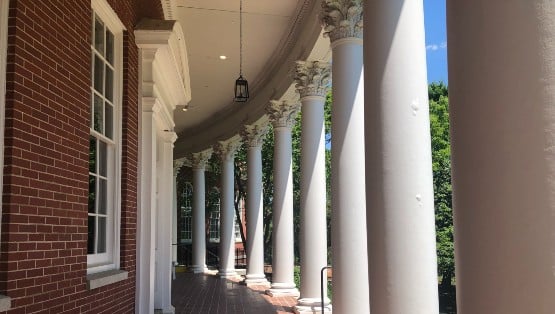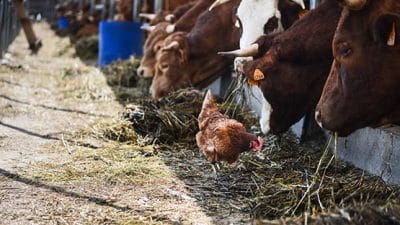 An undercover investigation at Natural Bridge Zoo revealed abuse and neglect of animals including the persistent mistreatment of tiger cubs—from birth—used for public handling and trauma inflicted on primates bred for the exotic animal trade. The Humane Society of the United States conducted the nearly five-month investigation at the private menagerie in rural Natural Bridge, Va.
An undercover investigation at Natural Bridge Zoo revealed abuse and neglect of animals including the persistent mistreatment of tiger cubs—from birth—used for public handling and trauma inflicted on primates bred for the exotic animal trade. The Humane Society of the United States conducted the nearly five-month investigation at the private menagerie in rural Natural Bridge, Va.The investigation also found chronic and serious problems throughout the roadside zoo, including a critical lack of veterinary care, crowded conditions, filthy cages, animals fed rotten produce and deteriorating meat, no psychological enrichment for primates and other unsafe conditions.
The HSUS documented:
-
Physical abuse, including hitting, smacking and punching, started when the tiger cubs were less than six weeks old and was a routine form of discipline.
-
Tiger cubs were kept excessively hungry to facilitate public handling and were handled by dozens of people daily, even when they were tired or not feeling well. Tiger cubs were often so tired they could barely keep their eyes open during photo sessions.
-
Two tiger cubs used for public handling were never seen by a veterinarian, even when they were sick.
-
Public handling started when the tiger cubs were only four weeks old until they were more than 17 weeks old, weighed 50 pounds and could barely be lifted, let alone controlled.
-
Fighting among primates kept in impoverished conditions was common, causing death and injury:
-
A macaque, who was bullied by cagemates, went weeks without being treated for a wound. When he was crated for shipment to another zoo, staff discovered he was bleeding heavily, his tail had been bitten off, and the injury was so severe that the bone was exposed.
-
A female spider monkey caged with an aggressive male suffered a hand injury that was neglected for two weeks until the wound became so badly infected that she had to be isolated, then sedated and treated almost daily for more than a month. Despite being in excruciating pain, she was never once given pain killers.
-
A DeBrazza monkey’s teeth were filed down with a rotary grinder to prevent him from inflicting bite wounds on other monkeys.
-
-
A DeBrazza monkey kept in a small pet carrier after a severe hand injury was terrorized by staff who jabbed sticks through the pet taxi to provoke him to move, resulting in an additional injury to his mouth.
-
A capuchin monkey was found dead by the investigator, apparently poisoned by the careless placement of rat bait.
-
A 24-year-old underweight pregnant giraffe, who had never fully recovered from giving birth to twins the previous year, yet was bred again, was found dead.
-
A baby camel suffered a traumatic death by hanging after her neck became wedged in a gap between a gate and a wall.
-
A lamb who was known by owners Karl and Debbie Mogensen to be sick for a week, yet was never seen or treated by a veterinarian, thrashed about writhing in pain for over an hour before he finally died.
-
Dead and dying guinea pigs were found almost daily in overheated, poorly ventilated, and overcrowded metal tubs. Sick guinea pigs were killed by repeatedly slamming them to the ground.
-
Debbie Mogensen, who is not a veterinarian or licensed vet tech, castrated peoples’ pet goats without sedation or pain killers and in extremely unsanitary conditions.
-
Numerous muntjac deer died from an unknown illness. They suffered hair loss and diarrhea and died within a few months without veterinary care.
Matthew Gray, Virginia state director of The HSUS said: “The Natural Bridge Zoo is woefully behind the times and as a result, the animals are suffering and public safety is compromised. We’re urging Virginia legislators and Department of Natural Resources to strengthen state law by ensuring that animals in private hands and at roadside zoos are humanely treated and to limit the possession of primates to only qualified facilities in order to protect both captive wildlife and the public. We must put an end to this dangerous and cruel business.”
The HSUS has filed legal complaints with state and local officials for potential violations of animal cruelty laws, with the Virginia Department of Game and Inland Fisheries for potential violations of state wildlife law, with the U.S. Department of Agriculture for potential violations of the Animal Welfare Act, and with the U.S. Fish and Wildlife Service for likely violations of the Endangered Species Act. HSUS is further urging the U.S. Department of Agriculture to act on a legal petition that was filed in 2012 by a coalition of animal protection organizations seeking explicit regulations prohibiting public contact with dangerous wild animals no matter the age of the animals. This cycle of breeding, exploiting, then dumping baby animals after a few months fuels the exotic pet trade, puts animals at risk, endangers the public, and creates a burden for both law enforcement and nonprofit sanctuaries.
Read more in the investigation report.










